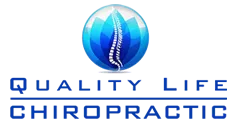The great TV classic ER helps teach armchair physicians to become amateur diagnosticians. He's in shock! She's got kidney stones! Rule-out pheochromocytoma!
But sometimes a little knowledge can be a dangerous thing.
You've learned somewhere - on the network news, in the Science section of The New York Times, or in a CPR class at your job - that shoulder pain can mean you're having a heart attack. Now, seemingly out of the blue, your shoulder begins to ache and throb. Very concerned, you rush to the local emergency room.
The resident's first question, of course, is "where does it hurt"? You point to your right shoulder and blurt out, "Am I having a heart attack?" The resident smiles, gently reassuring. "A heart attack might give you pain in your left shoulder," she says. "Have you been to the gym lately? This might be a rotator cuff strain."
The resident knows that heart attack symptoms usually involve chest pain (in two-thirds of cases), and may include faintness, shortness of breath, sweating, and a feeling of impending doom.1 Chest pain may spread to the back, jaw, and arms. Left arm pain may radiate to the inside of the forearm and the ring and little fingers. So, shoulder pain by itself probably doesn't suggest a heart attack.
She orders an MRI which shows mild damage to the right rotator cuff. What's going on? What exactly is the rotator cuff?
The rotator cuff is a muscular sheath that surrounds the head of the arm bone (the humerus) and the entire shoulder joint (really, two joints - the acromioclavicular and glenohumeral joints). The four muscles that comprise the rotator cuff help raise the arm to the front and the side and help turn the shoulder inward and outward.
If you're a sports fan, you know that rotator cuff injuries affect baseball pitchers, tennis players, swimmers, and football players. Such injuries are due to repetitive motion, and may also result from falling on the shoulder or arm or lifting heavy weights.
Rotator cuff injuries may also be slowly developing and chronic, related to arthritic and degenerative changes in the rotator cuff tendon and the two shoulder joints. Low-grade pain may develop, and the pain may become aching, throbbing, and chronic. Raising the arm may cause pain, and there may be loss of mobility.2
In the above-40 population, lack of exercise and chronically poor posture may contribute to rotator cuff problems. Sitting at a desk all day, with the neck jutting forward and slumped shoulders, places long-term mechanical stress on the rotator cuff.
Chiropractic treatment may be very useful in helping to rehabilitate chronic rotator cuff injuries. The chiropractic physician is expert in evaluating postural problems and associated spinal conditions. By providing effective treatment, postural corrections, and rehabilitative exercise, chiropractors offer a comprehensive therapeutic program to reduce pain, improve shoulder mobility, and regain function.
1Source: Cedars-Sinai www.cedars-sinai.edu
2Baring T, et al: Management of rotator cuff disease. Best Pract Res Clin Rheumatol 21(2):279-294, 2007.
Shoulder Pain - Heart Attack or Rotator Cuff Injury?
- Created in Newsletter Library, Injury Rehab & Prevention
Locations
Find us on the map
Office Hours
Our Regular Schedule
Johns Creek Location
Monday:
9:00 am-1:00 pm
2:30 pm-6:00 pm
Tuesday:
9:00 am-12:30 pm
Wednesday:
9:00 am-1:00 pm
2:30 pm-5:00 pm
Thursday:
9:00 am-1:00 pm
2:30 pm-5:00 pm
Friday:
8:00 am-1:00 pm
Saturday:
Closed
Sunday:
Closed
